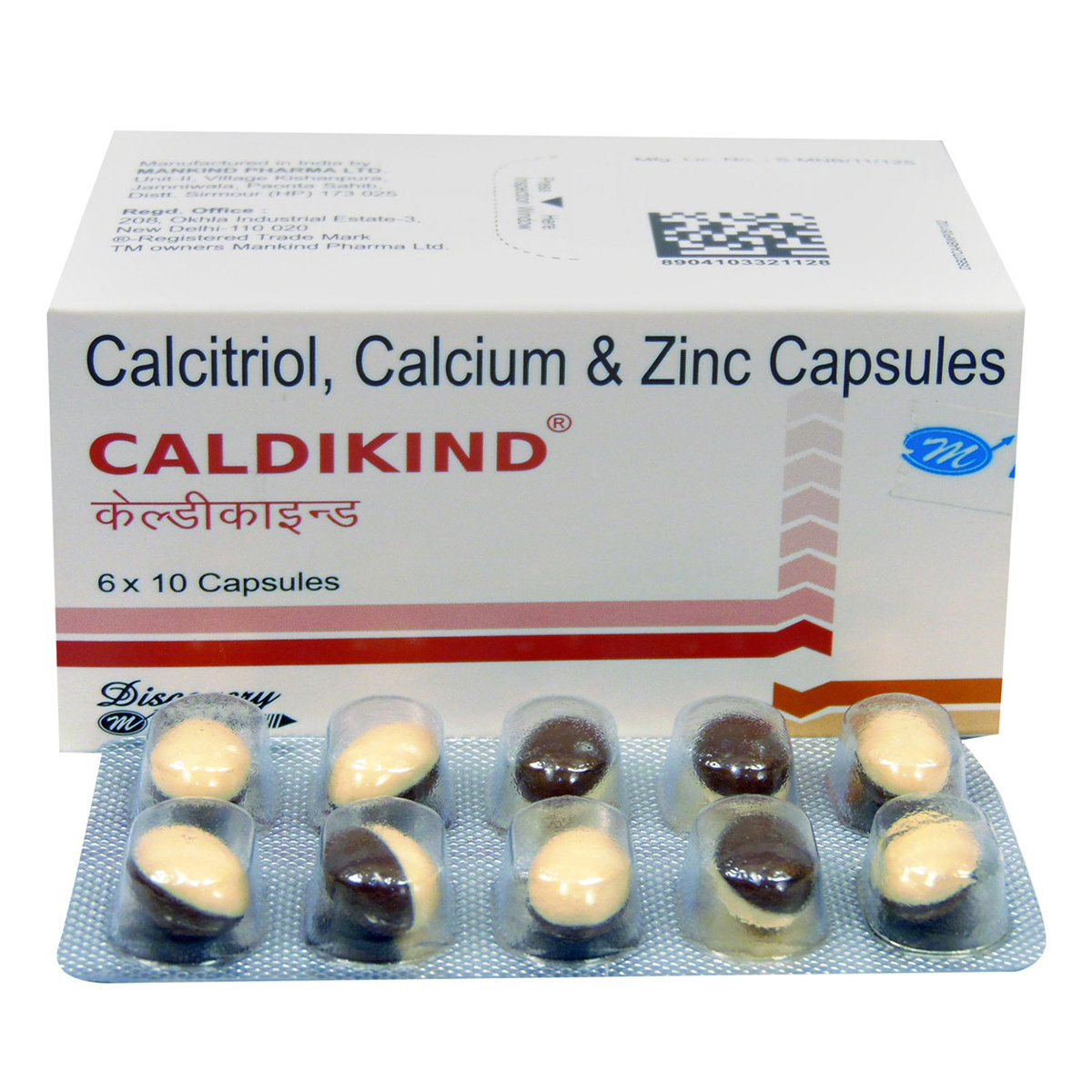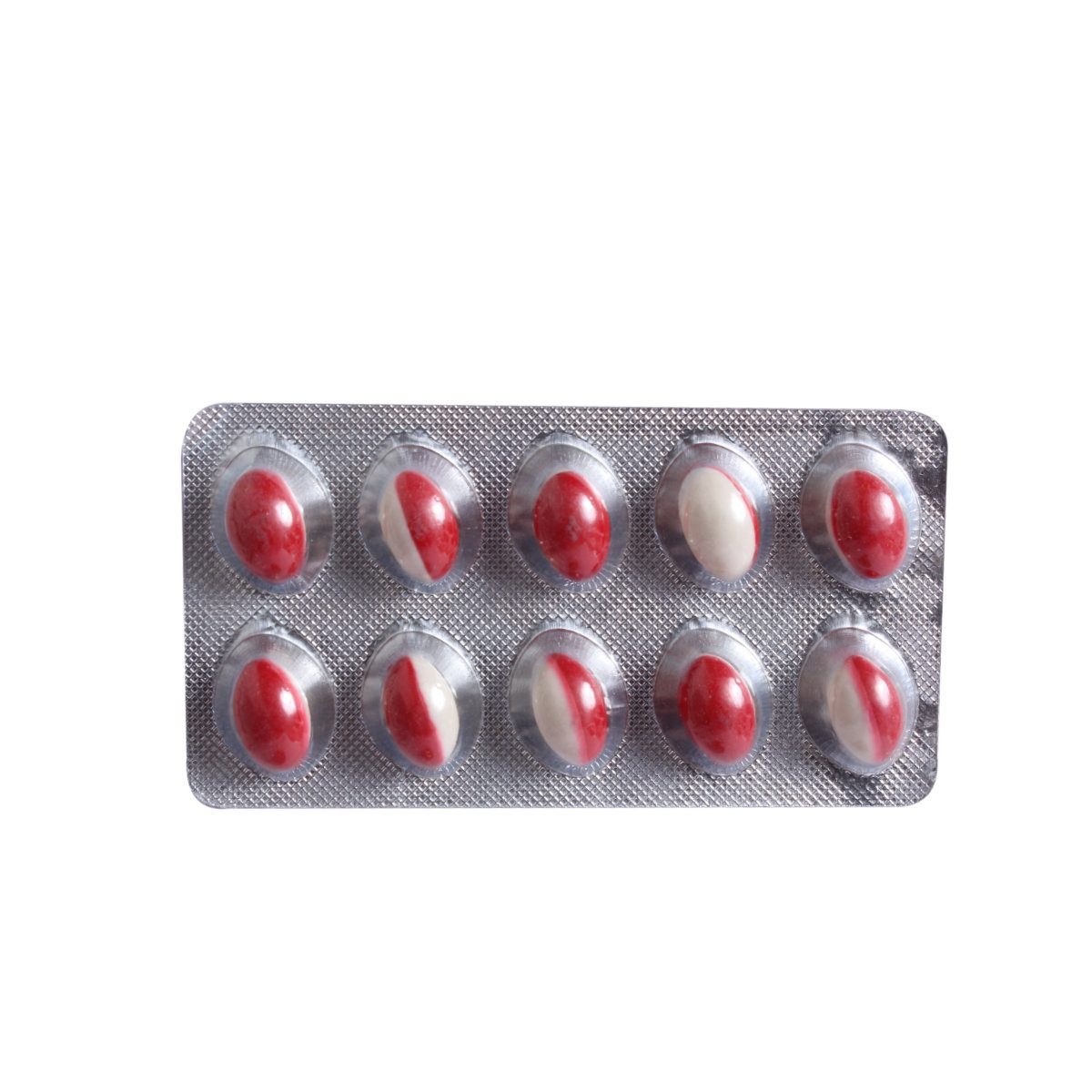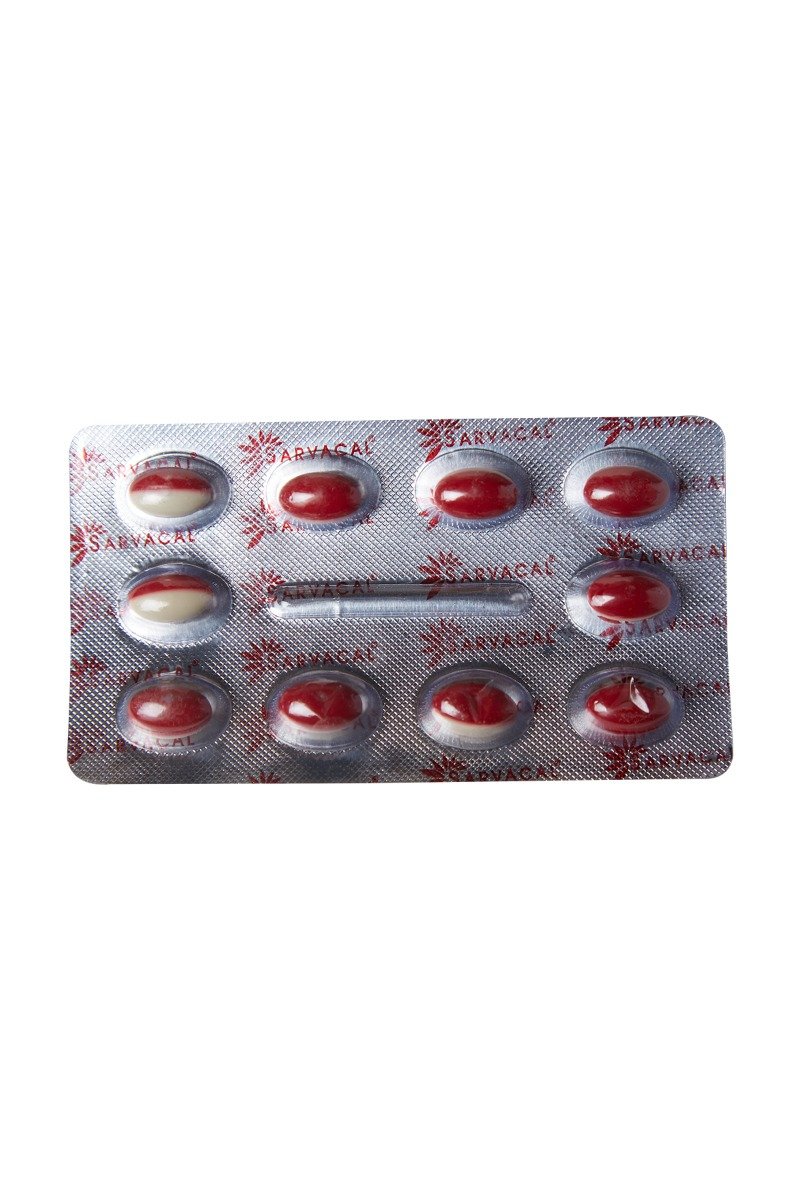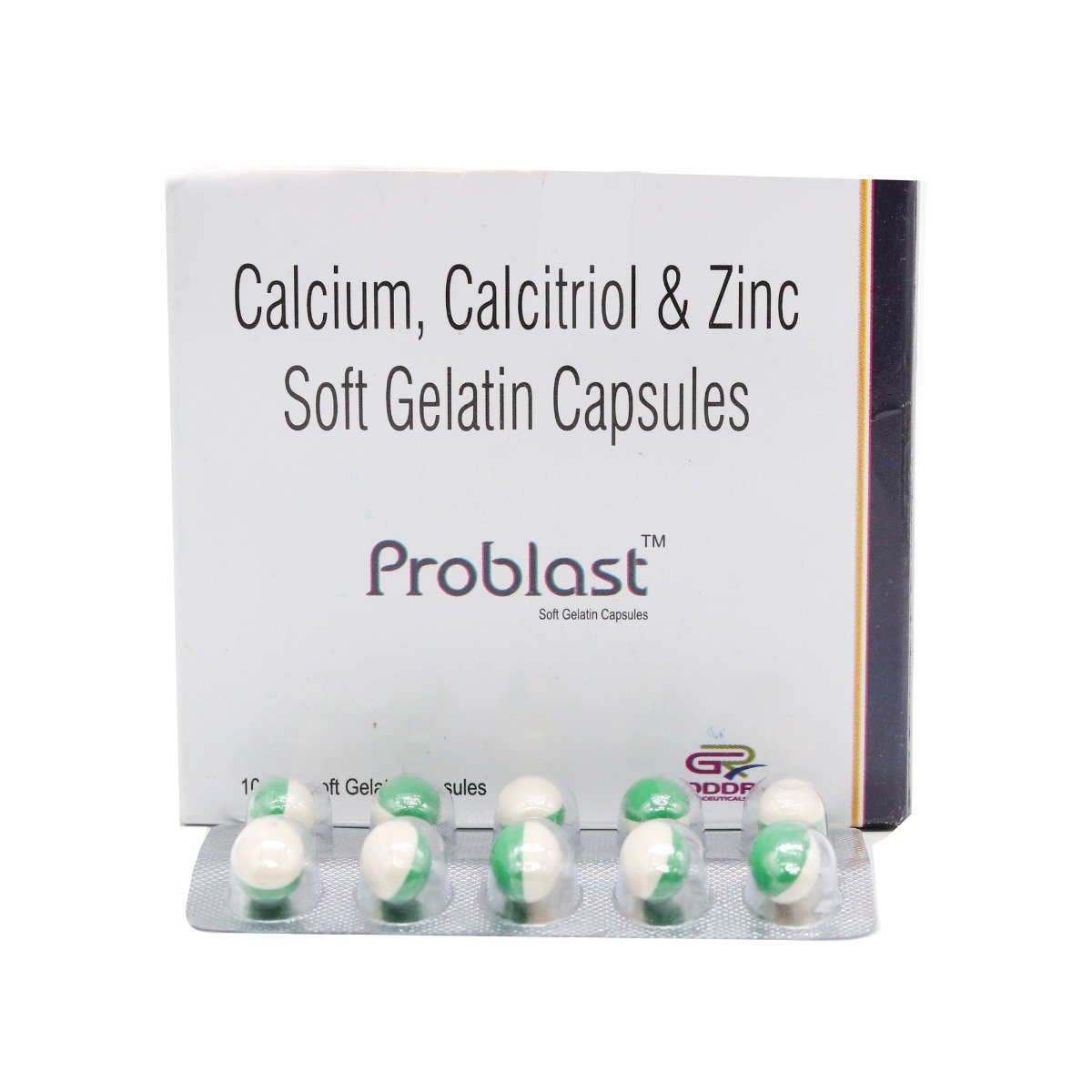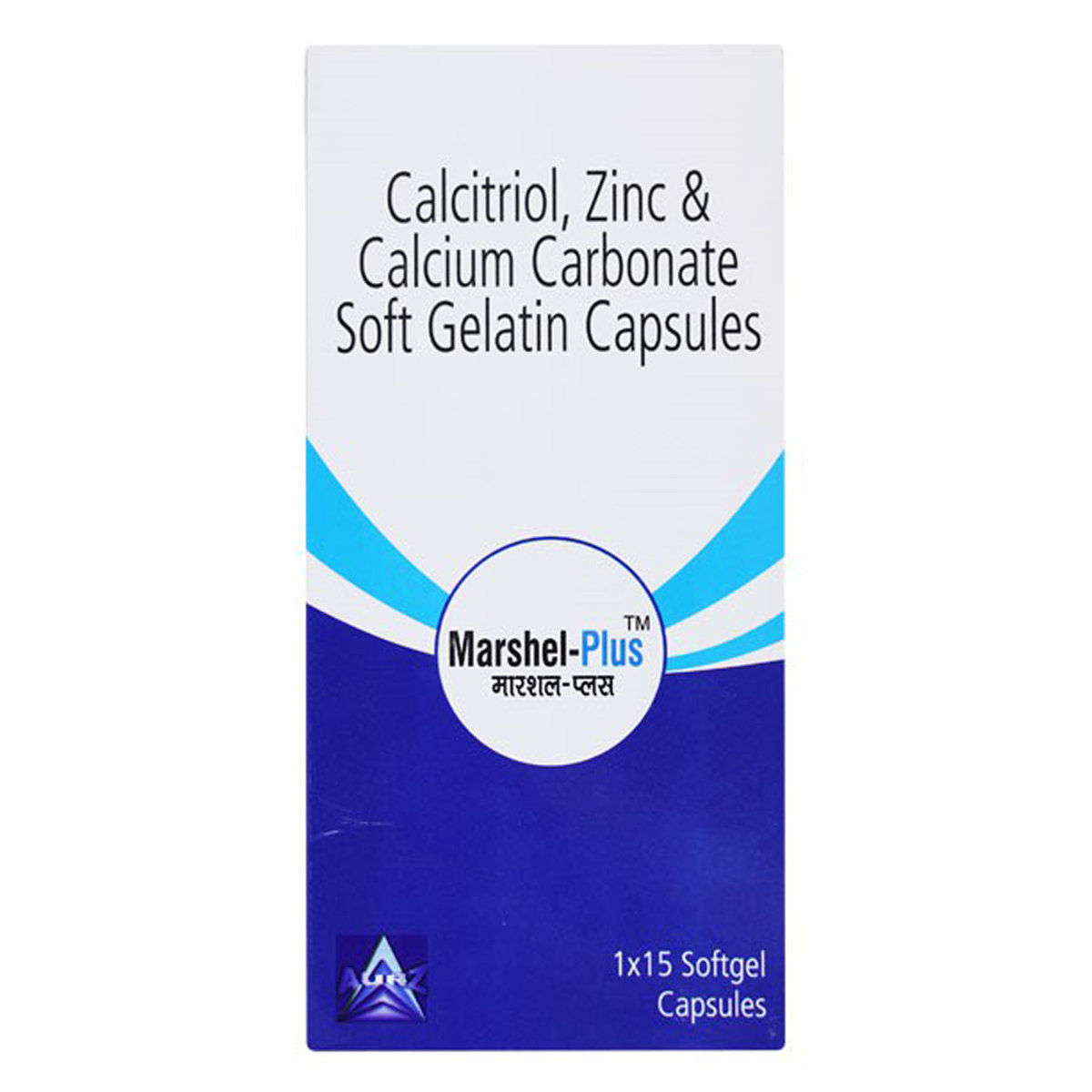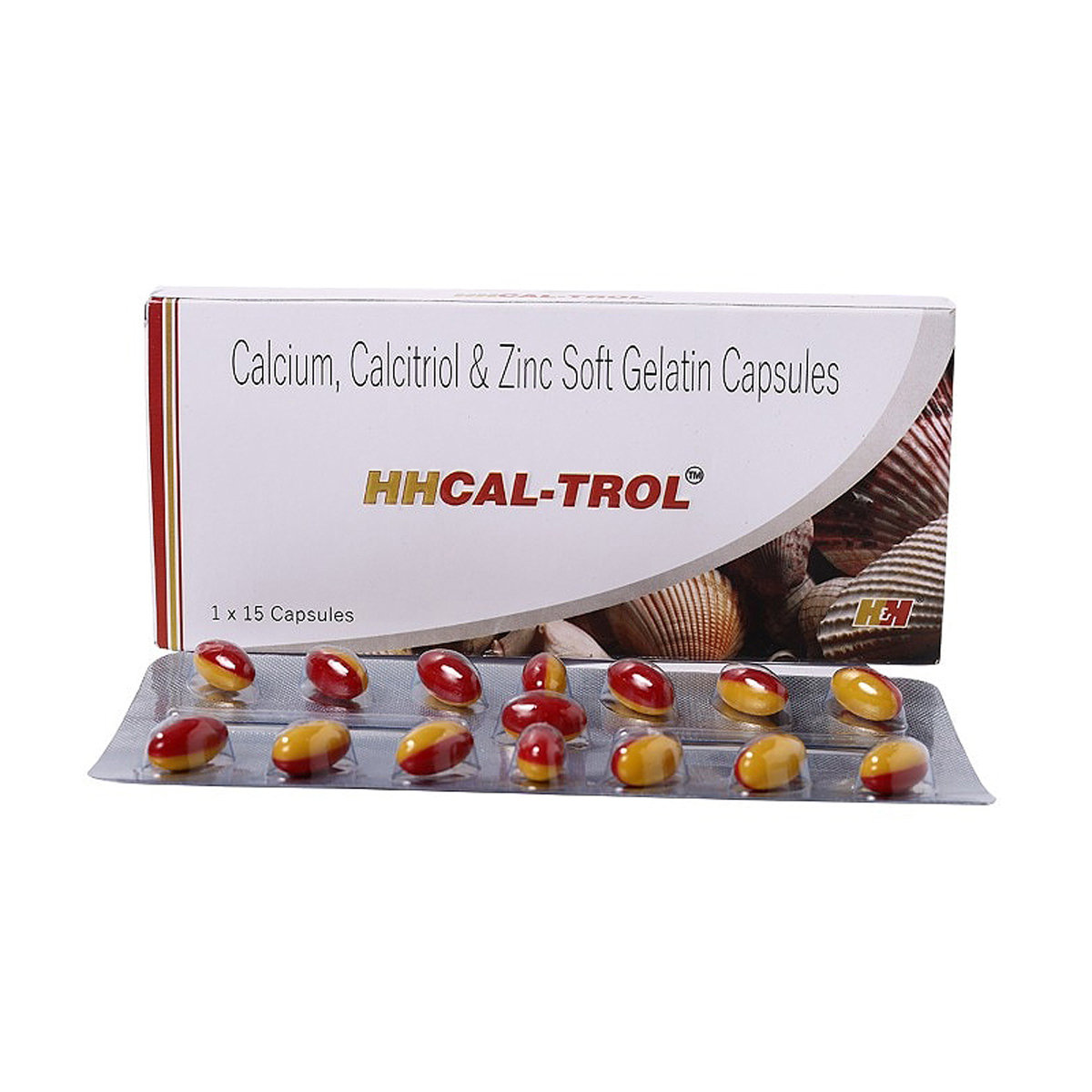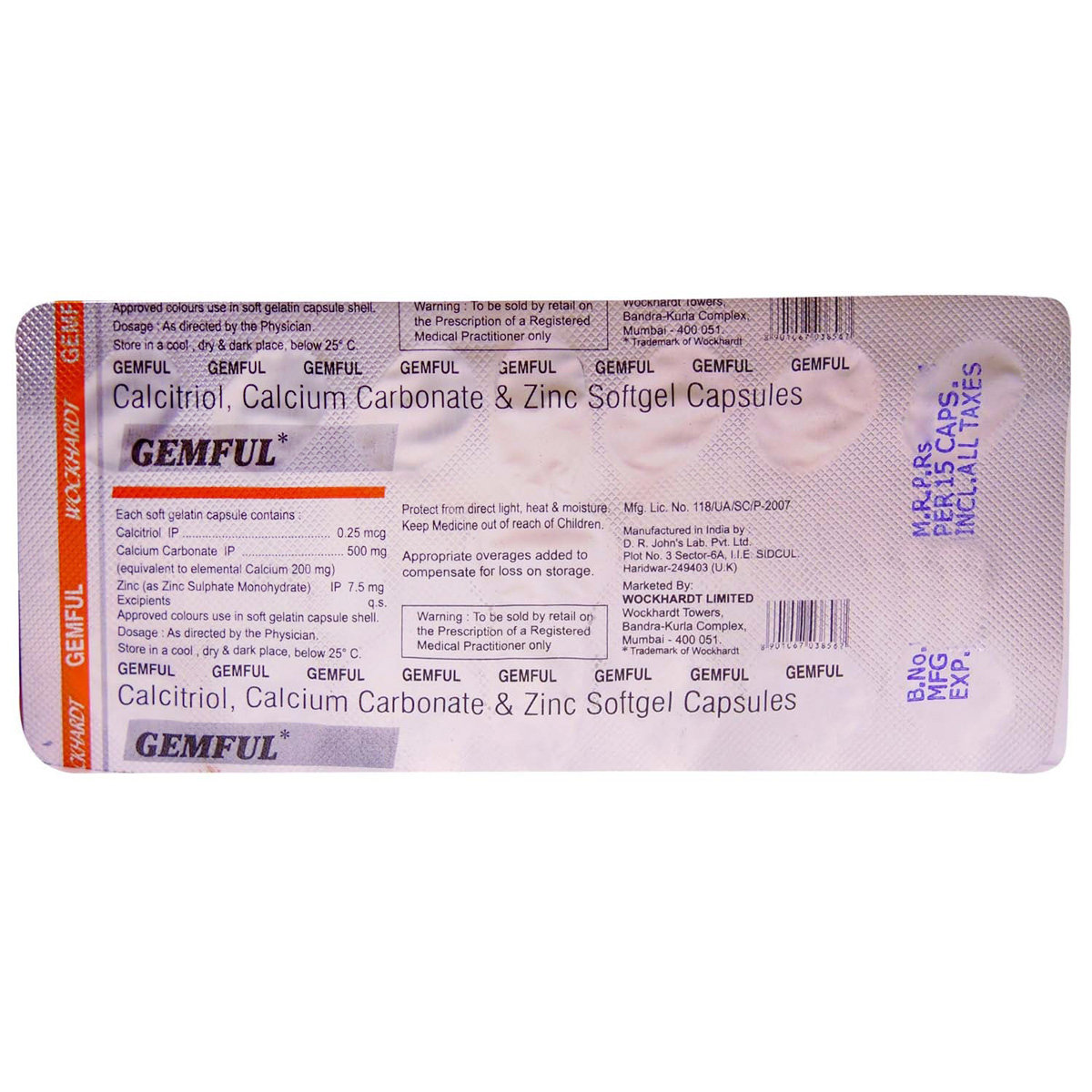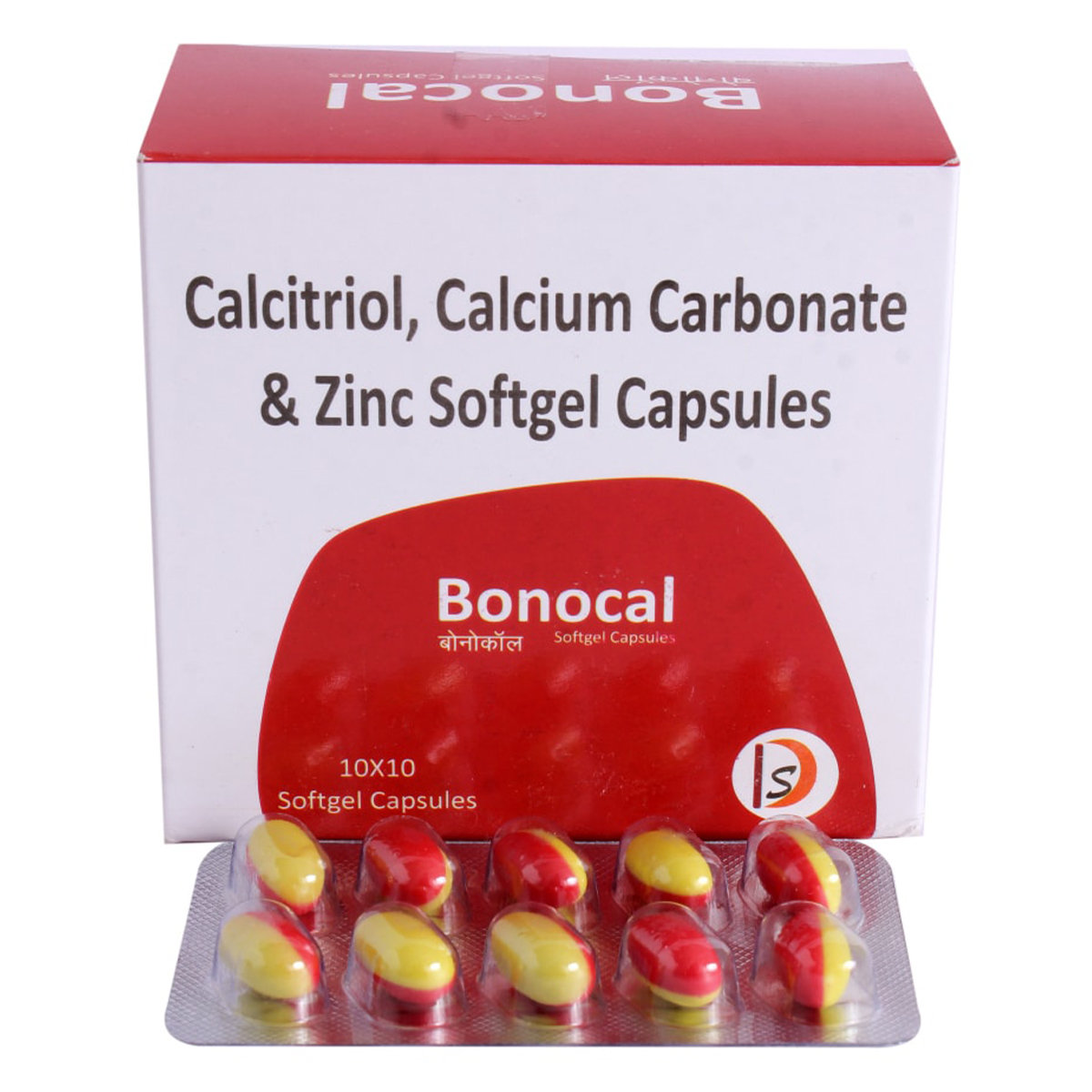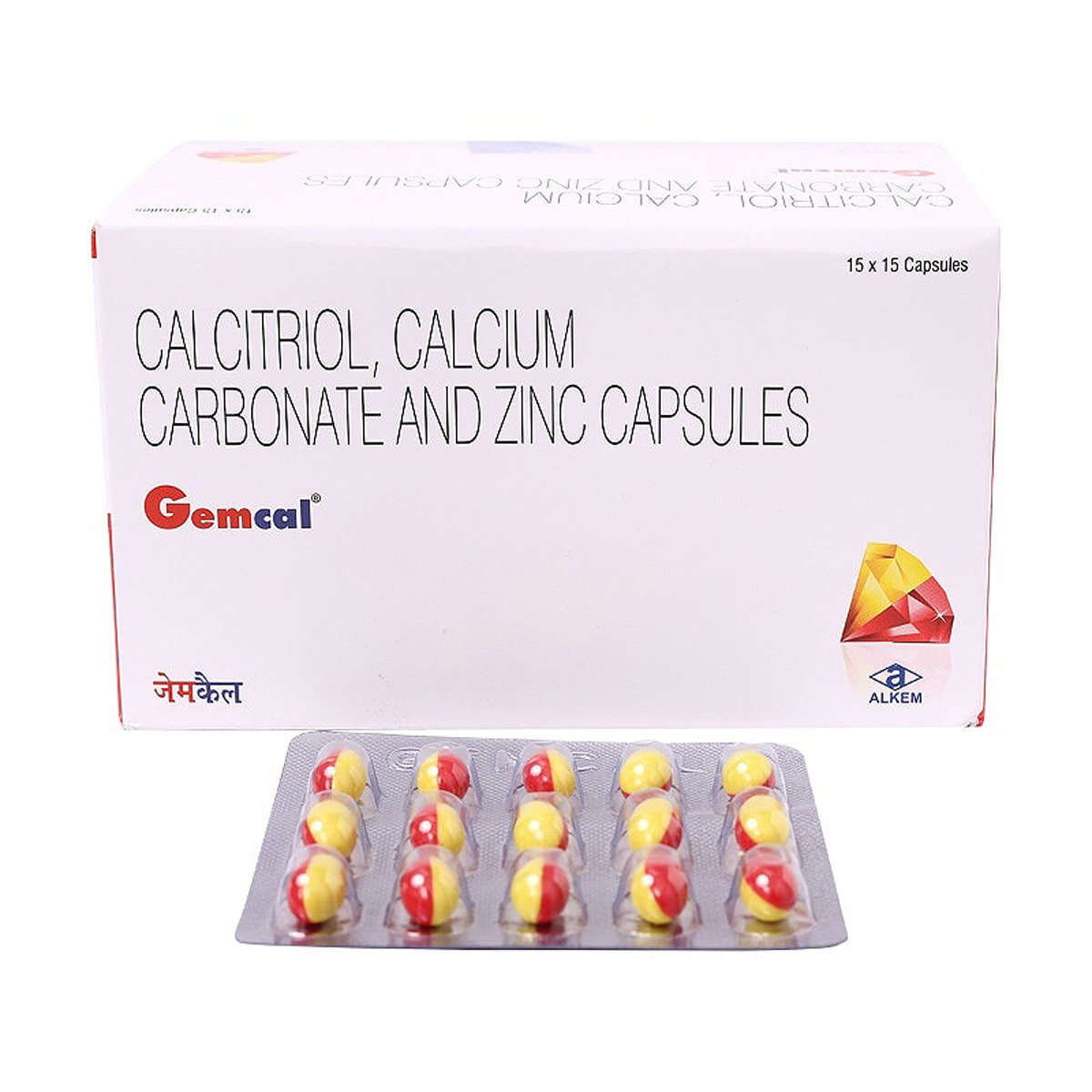Sinucal CT Capsule 10's
MRP ₹130
(Inclusive of all Taxes)
₹19.5 Cashback (15%)
Provide Delivery Location
Online payment accepted
 Prescription drug
Prescription drugWhats That
Manufacturer/Marketer :
Consume Type :
Expires on or after :
Return Policy :
About Sinucal CT Capsule
Sinucal CT Capsule belongs to the class of ‘Multi-minerals’ primarily used to treat low blood calcium levels. Sinucal CT Capsule effectively treats various conditions caused by low calcium levels in the body, such as osteoporosis (weak and brittle bones), osteomalacia/rickets (weak bones), hypoparathyroidism (low levels of parathyroid hormone), and latent tetany (a muscle disease with low blood calcium levels). Sinucal CT Capsule can also be given to pregnant, nursing, and postmenopausal women to ensure that they are getting enough calcium. Additionally, Sinucal CT Capsule is used to treat hyperparathyroidism (overactive parathyroid glands) and metabolic bone disease in people with chronic kidney disease, surgery, or other conditions.
Sinucal CT Capsule consists of three medicines, namely: Calcium carbonate (mineral), Calcitriol (Vitamin D3), and Zinc (mineral). Calcium is a mineral that is used to prevent or treat a calcium deficiency. It provides essential nutrients to maintain bone formation and maintenance. Calcitriol is a synthetic version of Vitamin D3 and treats calcium deficiency with hypoparathyroidism (the parathyroid glands' decreased activity) and metabolic bone diseases in people with chronic kidney failure. It raises Vitamin D levels and thereby increases calcium levels in the blood. This helps in improving the absorption rate of calcium from the intestine. Zinc is a mineral that has an essential role in bone health. Zinc helps to stimulate osteoblastic bone formation and mineralization.
Take Sinucal CT Capsule as instructed by your doctor. In some cases, Sinucal CT Capsule can cause side effects like constipation or stomach upset, nausea, vomiting, loss of appetite, mood changes, weakness, tiredness, fast or pounding heartbeat, bone/muscle pain, and headache. Most of these side effects of Sinucal CT Capsule do not require medical attention and gradually resolve over time. However, if these side effects persist longer, please consult your doctor.
If you are known to be allergic to Sinucal CT Capsule or its inactive components, please inform your doctor. Pregnant or breastfeeding women should consult their doctor before taking Sinucal CT Capsule . Higher doses of Vitamin D than the recommended daily dose should be used in pregnant women only when advised by the doctor. Sinucal CT Capsule may pass into the breast milk. Hence breastfeeding mothers need to seek medical advice before starting Sinucal CT Capsule . Sinucal CT Capsule may contain sugar or sorbitol; hence caution should be taken to have sugar intolerance, diabetes, and phenylketonuria (increased levels of an amino acid called phenylalanine).
Uses of Sinucal CT Capsule
Directions for Use
Key Benefits
Sinucal CT Capsule is a combination of three drugs, namely; Calcium carbonate (mineral), Calcitriol (Vitamin D3) and Zinc (mineral) used to treat low blood calcium levels and various associated conditions caused by low calcium levels in the body, such as osteoporosis (weak and brittle bones), osteomalacia/rickets (weak bones), hypoparathyroidism (low levels of parathyroid hormone), and tetany (a muscle disease with low blood calcium levels). Calcium carbonate is a mineral and prevents or treats calcium deficiency. It helps to maintain bone and teeth health. Calcitriol, a synthetic form of Vitamin D3, treats calcium deficiency with hypoparathyroidism (the parathyroid glands' decreased activity) and metabolic bone diseases in people with chronic kidney failure. Zinc is an important mineral in the normal growth and development of the skeletal system. It helps maintain bone density by increasing protein synthetase, which helps protect bone health.
Storage
- Stay hydrated by drinking plenty of water.
- Avoid dairy product such as cheese, milk, yogurt and ice cream.
- Maintain healthy weight and exercise daily.
- Following a low-calcium diet can help reduce hypercalcemia symptoms.
- Reduce sodium intake to minimize calcium excretion in urine.
- Limit animal protein consumption to decrease urinary calcium levels.
- Increase fluid intake by drinking plenty of water to dilute urine.
- Moderate calcium intake based on individual needs, avoiding drastic restriction.
- Limit oxalate-rich foods like spinach and chocolate to minimize kidney stone formation.
- Stay hydrated by drinking plenty of water.
- Consider reducing vitamin D supplementation if excessive intake is contributing to hypercalciuria.
- Regularly monitor urine calcium levels through 24-hour urine tests.
- Always seek guidance from a healthcare expert prior to implementing substantial changes to your diet or lifestyle routine.
- Drink water or other clear fluids.
- To prevent worsening of pain, limit intake of tea, coffee, or alcohol.
- Include bland foods like rice, toast, crackers, and rice in your diet.
- Avoid lying down immediately after eating as it may cause indigestion or heartburn.
- Avoid acidic and spicy food as it may cause indigestion.
- Inform your doctor about your constipation symptoms. They may adjust your medication or advise alternative treatments.
- Stay hydrated by drinking sufficient of water (at least 8-10 glasses a day) to help soften stool and promote bowel movements.
- Increase fibre intake by eating foods high in fibre, such as fruits, whole grains, vegetables and legumes, to help bulk up the stool.
- Establish a bowel routine by trying to go to the bathroom at the same time each day to train your bowels.
- Engaging in regular exercise, like walking or yoga, can support in bowel movement stimulation.
- Consult your doctor if constipation persists, and discuss alternative treatments or adjustments to your medication.
Drug Warnings
If you are known to be allergic to Sinucal CT Capsule or any other medicines, please tell your doctor. If you are pregnant or planning to become pregnant, it is advised to inform your doctor before using Sinucal CT Capsule . Higher doses of Vitamin D than the recommended daily dose should be used in pregnant women only when advised by the doctor. Calcitriol in higher doses may harm the fetus. Sinucal CT Capsule may pass into the breast milk; hence consult your doctor before taking Sinucal CT Capsule if you are a breastfeeding mother. Sinucal CT Capsule should be used with caution in children and only if recommended by a doctor. Calcitriol in Sinucal CT Capsule can affect growth in children. Inform your doctor if your child is not growing at a normal rate while using Sinucal CT Capsule . Sinucal CT Capsule is not recommended if you have hypercalcemia (high calcium levels), metastatic calcification (extra deposits of calcium in the body), hypervitaminosis D (high vitamin D levels), and malabsorption syndrome (difficulty absorbing nutrition from food). Inform your doctor before taking Sinucal CT Capsule if you have any heart/kidney/liver/blood vessel diseases, kidney stones, sarcoidosis (growth of inflammatory cells in different parts of the body), Crohn's disease (inflammatory bowel disease), Whipple's disease (bacterial infection affecting joints and digestive system), achlorhydria (little or no stomach acid), low levels of bile, and phosphate imbalance. Sinucal CT Capsule contains sugar or sorbitol; hence caution should be taken to have an intolerance to sugars, diabetes, and phenylketonuria (increased levels of an amino acid called phenylalanine).
Drug-Drug Interactions
Drug-Drug Interactions
Login/Sign Up
Co-administration of Paricalcitol and Sinucal CT Capsule are forms of vitamin D, and taking too much vitamin D may lead to toxic effects related to excessive calcium levels in the blood and urine.
How to manage the interaction:
Concomitant use of Paricalcitol with Sinucal CT Capsule can lead to an interaction, it can be taken if advised by a doctor. Consult the prescriber if you experience symptoms of vitamin D intoxication such as weakness, fatigue, headache, vertigo, drowsiness, ringing in the ears, loss of appetite, nausea, vomiting, constipation, dry mouth, metallic taste, muscle pain, bone pain, muscle incoordination, and low muscle tone. Do not discontinue the medication without consulting a doctor.
Co-administration of Sinucal CT Capsule with Dihydrotachysterol can increase the risk of adverse effects.
How to manage the interaction:
Co-administration of Dihydrotachysterol with Sinucal CT Capsule can possibly result in an interaction, but it can be taken if your doctor has advised it. If you notice any of these symptoms - irregular heartbeat, seizures, weakness, tiredness, headache, dizziness, ringing in the ears, loss of appetite, feeling sick, throwing up, constipation, dry mouth, strange taste in your mouth, muscle or bone pain, trouble coordinating movements, weak muscles, peeing a lot, feeling very thirsty, losing weight, eye infection, sensitivity to light, itching, or a higher body temperature - make sure to call a doctor right away. Do not discontinue any medications without consulting a doctor.
Co-administration of Orlistat with Sinucal CT Capsule may reduce the levels of Sinucal CT Capsule which can lead to low treatment outcomes.
How to manage the interaction:
Although there is an interaction, Sinucal CT Capsule can be taken with Orlistat when prescribed by the doctor. Do not discontinue any medications without consulting a doctor.
Co-administration of Metolazone with Sinucal CT Capsule can cause blood calcium levels to become too high.
How to manage the interaction:
Although there is an interaction, Sinucal CT Capsule can be taken with metolazone if prescribed by the doctor. Consult the doctor if you experience symptoms such as dizziness, drowsiness, weakness, lethargy, headache, nausea, vomiting, or seizures. Do not discontinue the medication without consulting a doctor.
Co-administration of Sinucal CT Capsule with Digitoxin may increase the risk or severity of digitoxin toxicity and irregular heart rhythm.
How to manage the interaction:
Although there is an interaction, Sinucal CT Capsule can be taken with Digitoxin if prescribed by the doctor. Consult the prescriber if you experience symptoms that could indicate high blood calcium, such as weakness, fatigue, headache, dizziness, drowsiness, ringing in the ears, loss of appetite, nausea, vomiting, constipation, dry mouth, a metallic taste in the mouth, bone or muscle pain, incoordination, frequent urination, and weight loss. Also, seek medical attention if you experience symptoms of digitoxin toxicity, such as blurred vision, slow pulse, or irregular heartbeats. Do not discontinue the medication without consulting a doctor.
Co-administration of Sinucal CT Capsule and Burosumab may cause increases in phosphorus and vitamin D levels in the blood, which may lead to an increased risk of kidney stones.
How to manage the interaction:
There may be a possibility of interaction between Sinucal CT Capsule and Burosumab, but it can be taken if prescribed by a doctor. If you have any of these symptoms like kidney stones, it's important to contact a doctor right away. Do not stop using any medications without a doctor's advice. Do not discontinue the medication without consulting a doctor.
Co-administration of Isoniazid with Sinucal CT Capsule may decrease the effects of Sinucal CT Capsule.
How to manage the interaction:
Although there is an interaction, Sinucal CT Capsule can be taken with isoniazid if prescribed by the doctor. Do not stop using any medications without talking to a doctor. Do not discontinue the medication without consulting a doctor.
Co-administration of Sinucal CT Capsule with Carbamazepine may decrease the effects of Sinucal CT Capsule.
How to manage the interaction:
Although there is an interaction, Sinucal CT Capsule can be taken with Carbamazepine if prescribed by the doctor. However, if you experience any unusual symptoms contact your doctor immediately. Do not stop using any medications without first talking to your doctor.
Co-administration of Rifapentine with Sinucal CT Capsule may decrease the effects of Sinucal CT Capsule.
How to manage the interaction:
Although there is an interaction, Sinucal CT Capsule can be taken with Rifapentine if prescribed by the doctor. The doctor may recommend dose adjustment or special tests to use both medicines safely. Do not discontinue the medication without consulting a doctor.
Taking Sinucal CT Capsule with Fosphenytoin can reduce the levels and efficacy of Sinucal CT Capsule.
How to manage the interaction:
Taking Sinucal CT Capsule with Fosphenytoin together can possibly result in an interaction, but it can be taken if a doctor has advised it. If you notice any symptoms of sudden dizziness, weakness, chest pain or pressure, abnormal body movements, uncontrollable eye movements, itching, burning, or tingling sensation, it's important to contact a doctor right away. Do not stop using any medications without a doctor's advice. Do not discontinue the medication without consulting a doctor.
Drug-Food Interactions
Drug-Food Interactions
Login/Sign Up
Diet & Lifestyle Advise
- Include dairy products like milk, yogurt, cheese, or milk-based custard in your diet.
- Eat daily a serving of broccoli, cabbage, bok choy, spinach, and other green leafy vegetables.
- Snack on calcium-rich nuts like Brazil nuts or almonds.
- Sprinkle sesame seeds over your food, vegetables, and salads. Sesame seeds are high in calcium.
- Avoid or reduce the intake of caffeine, soft drinks, and alcohol that inhibit calcium absorption.
- Replace the meat with tofu or tempeh for extra calcium in your food.
Side Effects of Sinucal CT Capsule
- Nausea
- Vomiting
- Headache
- Stomach pain
- Constipation
- Mood changes
- Tiredness/ weakness
- Fast or pounding heartbeat
Habit Forming
Therapeutic Class
All Substitutes & Brand Comparisons
RX
Caldikind Capsule 10's
Mankind Pharma Pvt Ltd
₹101
(₹9.09 per unit)
22% CHEAPERRX
Ozocal Capsule 10's
Ozone Pharmaceuticals Ltd
₹118.5
(₹10.67 per unit)
8% CHEAPERRX
Vegacal Capsule 10's
Olamic Pharma Pvt Ltd
₹126.5
(₹11.39 per unit)
2% CHEAPER
Drug-Diseases Interactions
Drug-Diseases Interactions
Login/Sign Up
FAQs
Drug-Drug Interactions Checker List
- ESTRAMUSTINE
- CHOLESTYRAMINE
- DIGITALIS
- CIPROFLOXACIN
- LEVOFLOXACIN
- GATIFLOXACIN
- SPARFLOXACIN
- OFLOXACIN
- KETOCONAZOLE
Special Advise
- Clinical monitoring of serum electrolyte concentrations and cardiac function is recommended.
- A low phosphate diet is recommended to control serum phosphorus levels in patients undergoing dialysis.
Disease/Condition Glossary
Osteoporosis: It is a bone disease that weakens and brittle bones by decreasing bone density. As bones become less dense, they weaken and are more likely to break. Breaking a bone is a serious complication of osteoporosis, especially with older patients. Women are much more likely to develop osteoporosis than are men. Signs and symptoms include back pain caused by a fractured or collapsed vertebra, loss of height over time, a stooped posture, a bone that breaks much more easily than expected.
Osteomalacia/Rickets: A bone disease caused by softening and weakening bones in children due to inadequate vitamin D. Adults can experience a similar condition known as osteomalacia. It causes bone pain, poor growth, and soft, weak bones that can lead to bone deformities.
Tetany: A disease condition due to low levels of calcium (hypocalcemia) in the body causes cramps and spasms in the hands, feet, and larynx (voice box).
Hypoparathyroidism: It is a disease characterized by low levels of parathyroid hormone. This can cause low calcium levels and trigger tetany.

Have a query?
Alcohol
Safe if prescribed
Drinking alcohol can affect calcium absorption; hence it is advised to limit the alcohol intake while using Sinucal CT Capsule .
Pregnancy
Consult your doctor
During pregnancy, use higher doses of Sinucal CT Capsule than the daily dietary allowance only when advised by the doctor. Calcitriol in higher doses may harm the fetus. Your doctor will weigh the potential risks and benefits before recommending Sinucal CT Capsule .
Breast Feeding
Consult your doctor
Consult your doctor before taking Sinucal CT Capsule if you are breastfeeding. Sinucal CT Capsule can pass into the breast milk. If Sinucal CT Capsule is used during breastfeeding, please monitor the mother and the infant's serum calcium levels.
Driving
Safe if prescribed
No interaction was found/established.
Liver
Consult your doctor
Let your doctor know if you have any history of liver diseases before taking Sinucal CT Capsule . Hepatic impairment/liver disease can alter the metabolic and therapeutic activity of certain Vitamin D forms.
Kidney
Consult your doctor
It is advised to seek doctor advice before starting Sinucal CT Capsule if you have kidney diseases like kidney stones or undergoing dialysis. Calcitriol in Sinucal CT Capsule increases inorganic phosphate levels in serum; hence caution should be taken in patients undergoing dialysis to maintain adequate phosphorus levels and avoid ectopic calcification (calcium deposition).
Children
Safe if prescribed
Sinucal CT Capsule should be used with caution in children and only if recommended by a doctor.




